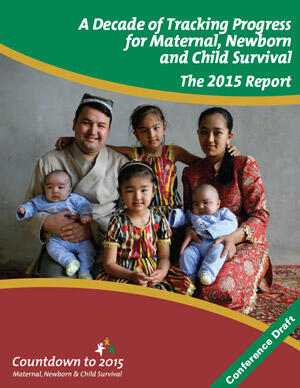
Countdown to 2015, a global movement of 43 multi-stakeholders, with The Lancet as a key partner, has tracked progress on reproductive, maternal, newborn and child health indicators over the last 10 years in 75 priority countries to stimulate and support progress towards health-related Millennium Development Goals 4 and 5 (Reduce Child Mortality & Improve Maternal Health)
The final report has just been released and shows that, although some health issues and some countries have seen considerable progress, important gaps remain that must not be forgotten in the transition from the Millennium Development Goals to the Sustainable Development Goals. The report provides a comprehensive overview of the countries involved and examines trends in mortality and nutrition; intervention coverage (including inequality); financial flows to reproductive, maternal, newborn and child health; and supportive policy and systems measures. The report then assesses changes in data availability and their implications for program managers and decision makers. It concludes by turning a critical lens on the Sustainable Development Goals framework and future accountability efforts, drawing from Countdown’s 10 years of monitoring experience.
LSTM’s Centre for Maternal & Newborn Health (CMNH) contributed to the final report by focusing on how the quality of care delivered to women and children could be measured. The assessment of quality of care is essential to strengthen service delivery further. CMNH focused on health facilities in selected countries in Sub-Saharan Africa and South Asia over a two year period (2012 – 2014). ‘The results were sobering’, said Luigi D’Aquino, Senior Technical Officer of CMNH, ‘In order to generate data on service quality, routine sources are not enough and additional standalone tools will be required’, he continued.
The report states that as a result of this outcome, as shown by CMNH, strong leadership and a focused development programme will be needed to generate technical consensus on a limited number of quality indicators across the continuum of care that are feasible for measurement in low- and middle-income countries and to generate timely information useful for both programme monitoring and global reporting.
For more information and a full download option of the report please click here